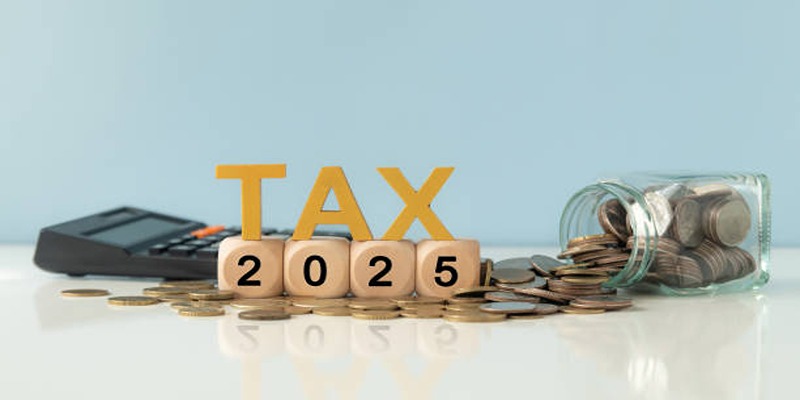Getting a tax refund can be an exciting moment, but the waiting game can leave many wondering, “How long does it take to get a tax refund?” The truth is that the time it takes can vary depending on several factors. While some taxpayers may receive their refunds within a few weeks, others may find themselves waiting longer.
Understanding the factors that impact this timeline can help you manage expectations and plan accordingly. In this article, we will break down the entire process to help you understand what to expect, how to speed things up, and what to do if your refund is delayed.
Factors Affecting Your Tax Refund Timeline
When you submit your taxes, you may wish for a speedy refund, but some factors can influence the time frame for receiving it. Understanding them can provide a better idea of the timeline.
Filing Method: Paper vs. E-filed Tax Returns

The way you file your taxes greatly determines when you will get your refund. Paper filing is slower, as it takes about six to eight weeks because the processing is manual. E-filing, however, is faster, with the refunds being delivered within 21 days, given that there is no problem. E-filing is quicker as it mechanizes the checking process, enabling the IRS to work on returns quickly and efficiently, hence cutting wait time.
Refund Method: Direct Deposit vs. Paper Check
The way you want to receive your refund contributes to how quickly it arrives. Direct deposit is the fastest option, and refunds typically arrive in your bank account within 21 days. This skips processing physical checks and speeds up processing. But if you want a paper check, mailing adds additional time. The check must be processed and mailed out physically, which can delay your waiting by several days or weeks.
Errors or Incomplete Information
Errors on your tax return can significantly slow down the refund process. Mistakes such as incorrect Social Security numbers, misspelled names, or missing forms will delay processing, as the IRS must resolve these issues. Additionally, if the IRS needs more information, they may contact you, which can further extend the timeline. To avoid delays, ensure your tax return is complete and accurate before submission, and double-check all details to prevent unnecessary complications.
Tax Deductions and Credits
Claiming tax credits like the Earned Income Tax Credit (EITC) or Additional Child Tax Credit (ACTC) can delay your refund. The IRS must verify eligibility, leading to extended processing times. By law, refunds for these credits cannot be issued before mid-February. While these extra checks help prevent fraud, they result in longer wait times for taxpayers who claim them on their returns.
The IRS Refund Timeline
The IRS has a general timeline for processing tax refunds, but as previously mentioned, this can vary depending on several factors. In general, the IRS states that most e-filed tax returns are processed and refunds issued within 21 days. However, this can change if your return is flagged for additional review or if you have made errors on your form.
For those who file paper returns, the wait time can be significantly longer. In these cases, the IRS estimates it may take six to eight weeks to process a paper return and issue a refund. If you’re hoping to get your refund quickly, e-filing and opting for direct deposit is your best bet.
How to Track Your Refund Status?
Once you’ve filed your tax return, you’ll likely be eager to know when your refund will arrive. Fortunately, the IRS provides several ways to check on the status of your refund.
IRS “Where’s My Refund?” Tool
The IRS provides a free online tool called "Where's My Refund?" to help taxpayers track their refund status. This tool, available on the IRS website, informs users if their return has been received, processed, or issued. To access it, taxpayers must enter their Social Security number, filing status, and refund amount. The IRS advises waiting 24 hours after e-filing or four weeks after mailing a paper return before checking for updates.
IRS2Go Mobile App

For those who prefer mobile access, the IRS2Go app offers an easy way to check refund status. Available for iOS and Android devices, it provides the same features as the "Where's My Refund?" tool. Users can track their refunds, make tax payments, and access free tax preparation services. The app ensures quick updates and additional IRS resources in one place, making it a convenient option for taxpayers who want to monitor their refund on the go.
What to Do if Your Refund is Delayed?
Sometimes, delays are unavoidable, but if you feel like your refund is taking too long, there are steps you can take to resolve the issue.
Check for Mistakes
As mentioned earlier, errors on your tax return can delay your refund. If you haven’t already, double-check your return to ensure everything is correct. If you find any mistakes, you can file an amended return to correct them. Keep in mind that this will likely delay your refund further, so it’s best to file accurately the first time around.
Contact the IRS
If more than 21 days have passed since you e-filed and you haven't received your refund, contact the IRS. You can reach them by phone or online for updates on the delay. They can provide details on the issue and help you resolve it. Checking your return for errors beforehand may also help speed up the process.
Conclusion
Getting a tax refund depends on factors like filing method, refund preference, and potential errors. E-filing with direct deposit is the fastest option, usually taking less than 21 days, while paper returns take longer. Tracking your refund through IRS tools helps manage expectations. Delays can occur due to errors or additional verification. If your refund takes longer than expected, checking for mistakes and contacting the IRS can help. Filing early and accurately ensures a smoother process and quicker access to your money.












